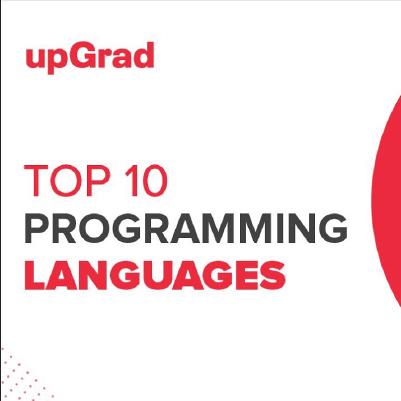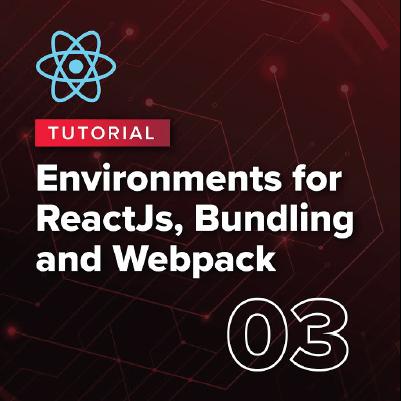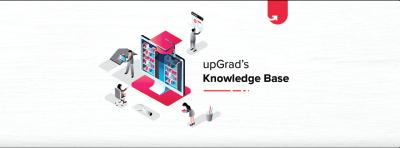For working professionals
Domains
Doctorate
Artificial Intelligence
Data Science
Gen AI & Agentic AI
MBA
Marketing
Management
Education
Doctorate
For All Domains
IIITB & IIM, Udaipur
Chief Technology and AI Officer ProgramSwiss School of Business and Management
Executive Doctor of Business Administration from SSBMEdgewood University
Doctorate in Business Administration by Edgewood UniversityGolden Gate University
Doctor of Business Administration From Golden Gate UniversityRushford Business School
Doctor of Business Administration from Rushford Business School, SwitzerlandGolden Gate University
MBA to DBA PathwayLeadership / AI
Golden Gate University
DBA in Emerging Technologies with Concentration in Generative AIGolden Gate University
DBA in Digital Leadership from Golden Gate University, San FranciscoArtificial Intelligence
Degree / Exec. PG
IIIT Bangalore
Executive Diploma in Machine Learning and AIOPJ Global University
Master’s Degree in Artificial Intelligence and Data ScienceLiverpool John Moores University
Master of Science in Machine Learning & AIGolden Gate University
DBA in Emerging Technologies with Concentration in Generative AIExecutive Certificate
IIITB & IIM, Udaipur
Chief Technology and AI Officer ProgramIIIT Bangalore
Executive Programme in Generative AI for LeadersupGrad | Microsoft
Gen AI Foundations Certificate Program from MicrosoftupGrad | Microsoft
Gen AI Mastery Certificate for Data AnalysisupGrad | Microsoft
Gen AI Mastery Certificate for Software DevelopmentupGrad | Microsoft
Gen AI Mastery Certificate for Managerial ExcellenceOffline Bootcamps
upGrad
Data Science and AI-MLData Science
Degree / Exec. PG
O.P Jindal Global University
Master’s Degree in Artificial Intelligence and Data ScienceIIIT Bangalore
Executive Diploma in Data Science & AILiverpool John Moores University
Master of Science in Data ScienceExecutive Certificate
upGrad | Microsoft
Gen AI Foundations Certificate Program from MicrosoftupGrad | Microsoft
Gen AI Mastery Certificate for Data AnalysisupGrad | Microsoft
Gen AI Mastery Certificate for Software DevelopmentupGrad | Microsoft
Gen AI Mastery Certificate for Managerial ExcellenceupGrad | Microsoft
Gen AI Mastery Certificate for Content CreationOffline Bootcamps
upGrad
Data Science and AI-MLGen AI & Agentic AI
Gen AI & Agentic AI
Masters

Paris School of Business
Master of Science in Business Management and TechnologyO.P.Jindal Global University
MBA (with Career Acceleration Program by upGrad)Edgewood University
MBA from Edgewood UniversityO.P.Jindal Global University
MBA from O.P.Jindal Global UniversityGolden Gate University
MBA to DBA PathwayExecutive Certificate
IMT, Ghaziabad
Advanced General Management ProgramMarketing
Executive Certificate
upGrad | Microsoft
Gen AI Foundations Certificate Program from MicrosoftupGrad | Microsoft
Gen AI Mastery Certificate for Content CreationOffline Bootcamps
upGrad
Digital MarketingManagement
Degree
O.P Jindal Global University
MSc in International Accounting & Finance (ACCA integrated)
Paris School of Business
Master of Science in Business Management and TechnologyGolden Gate University
Master of Arts in Industrial-Organizational PsychologyExecutive Certificate
Education
Education
Northeastern University
Master of Education (M.Ed.) from Northeastern UniversityEdgewood University
Doctor of Education (Ed.D.)Edgewood University
Master of Education (M.Ed.) from Edgewood UniversityFor fresh graduates
Domains
Data Science
Management
Marketing
Data Science
Bootcamp
Offline Bootcamps
upGrad
Data Science and AI-MLManagement
Marketing
Bootcamp
upGrad Campus
Advanced Certificate in Performance MarketingOffline Bootcamps
upGrad
Digital Marketing- Study abroad
More
RESOURCES
BlogsCutting-edge insights on education
WebinarsLive sessions with industry experts
TutorialsMaster skills with expert guidance
Learning GuideResources for learning and growth
COMPANY
Careers at upGradYour path to educational impact
Hire from upGradTop talent, ready to excel
upGrad for BusinessSkill. Shape. Scale.
Offline CentresHands-on learning, near you
Experience centerImmersive learning hubs
About usOur vision for education
OTHERS
Refer and earnShare knowledge, get rewarded
Best Cloud Computing Courses - Training and Certification
Cloud computing refers to offering computing services that encompass databases, networking, servers, software, storage, analytics, and intelligence on the Internet.

Cloud Computing Course with Certification Overview
Cloud is a broad term referring to the Internet or a Network. It is something existing in a remote location. Cloud can deliver services over private networks (like LAN, WAN, VPN) and public cloud computing. Applications like web conferencing, e-mail, CRM, etc., operate on Cloud.
With this overview of the Cloud, the next step involves defining cloud computing. Cloud computing refers to offering computing services that encompass databases, networking, servers, software, storage, analytics, and intelligence on the Internet. The cloud computing overview states that it provides flexible resources, speeds up innovations, and enhances economies of scale. The fundamentals of cloud computing conclude that you only need to pay for the Cloud services you use. So, it operates your infrastructure more proficiently, reduces your operating costs, and scales according to changes in your business needs.
If you have decided to learn cloud computing, understanding only its overview will not suffice. Learning basic cloud computing is incomplete without understanding how it works. Whether you aspire to become a Cloud engineer or want to explore more knowledge on Cloud, you should know the working of Cloud.
Let’s understand the functioning of basic cloud computing:
The cloud is categorised into various layers like front-end and back-end layers. In the front-end layer, users can interact. This layer comprises the computer network of the client and the application for accessing the cloud system. Keep in mind that all Cloud systems do not have identical user interfaces.
Here is an example that lets you learn cloud computing. Suppose, you log in to a Gmail account, you notice the UI wherein everything operates in the front-end layer of the cloud. Contrarily, the back-end layer contains hardware and software that conveys the back-end data from the database to the front-end layer. Factors like data storage systems, servers, and computers constitute the Cloud.
With the help of a network layer, Cloud connects various devices to provide access to resources existing in the central data centre of the cloud. Cloud technology users can use the data centre via the company's Internet or network facilities.
The ability to access Cloud anytime, anywhere is one of its key benefits. Note that the network bandwidth must be more. Not only a laptop and desktop users but mobile users too can access their business systems as per their demand.
Another method exists for shifting the workload in the cloud computing system's architecture. Local machines need not work on enormous lifting operations for running the applications. Cloud technology can quickly and efficiently deal with such tasks. So, this reduces the software and hardware needs. The user must focus on the system's cloud computing interface. This software behaves like a web browser at the user's front end. The cloud's network handles the backend side of things.
The front end embraces the cloud computing network for accessing the cloud computing system. Note that the interface of cloud computing systems is unique in each cloud.
An Internet or virtual network connects the back-end. Service providers equipped with various computers, servers, data storage facilities, and virtual machines use the back end to set up the cloud technology. The dedicated server deals with every application in the system.
In addition to front-end and back-end, cloud computing architecture includes other components like cloud resources, middleware, etc. Middleware is specific software that can process and connect networked computers.
A central server manages the whole cloud system architecture. The server is accountable for ensuring flawless traffic flow without interruption. The cloud service provider provides storage based on the user’s demand.
![]()
i. Easy maintenance:
It is hassle-free to install and set up the Cloud servers. These servers are also easy to manage. Usually, they feature extremely low downtime and deliver constant service to customers.
ii. Resource pooling:
All Cloud companies use computing resources and subsequently provide Cloud services to various customers. These resources are either classified into physical or virtual resources. They can be used and assigned to users as per their demands.
iii. Access to a huge network:
The users can access the huge Cloud network and use the services and resources offered by the cloud provider. They can use the Cloud network for data access and data upload from remote locations. Also, they can use Cloud services from any device. The only requirement is the Internet connection for connecting to the cloud network.
iv. Cost-effective:
Large organisations can offer a tiny portion of the Cloud to single or multiple small organisations. Doing this increases the affordability of the service, and everybody can benefit from the cloud services.
v. Availability:
Cloud services are available 24x7 to users. They can use a cloud network for storage or purchase more space as required. The user can access the data from the network whenever they want.
vi. Pay-as-you-use
Cloud services are such that the user needs to pay for only those services they use. No extra cost or hidden charges are involved.
vii. Broad Network access:
Cloud computing resources are accessible from a broad range of devices like smartphones, desktops, laptops, etc.
Cloud computing has been prevalent since the 1960s. In that era, J C R Licklider envisioned the idea of building computation as a global network. In the same era, John McCarthy assumed that computation was accessible as a public utility, identical to water or electricity.
The two principles that motivated the evolution of Cloud Computing are a global network and utility computing in a cloud computing model. However, its execution demanded a high level of technological advancement, but the technology had not developed to that level at that time. Hence, for the subsequent few years, the idea stayed as it is without implementation.
In the mid-twentieth century, the Internet began to evolve and the same instilled several key evolutions in technology. In the late 1990s, the Internet reached its maturity with several providers appearing with fast-speed Internet proposals. It was the ideal time to introduce cloud computing to the world.
Therefore, the history of cloud computing is directly proportional to the development of the Internet. From then onwards, the Cloud form is being used to signify the Internet.
Joseph Carl Robnett Licklider invented Cloud Computing in the early 1960s. He was a Computer Scientist and an American Psychologist. He invented Cloud Computing when attempting to connect people and data throughout the world in his network research work on the ARPANet (Advanced Research Project Agency Network).
It represents computing services offered via the public internet from third-party suppliers. These services are made accessible to those who intend to use them or purchase them. Moreover, it can be either on-demand or free for customers. So, customers can pay for the cycles, storage, or bandwidth being consumed.
In other words, in Public Cloud, the cloud provider provides a public cloud environment model via the internet on a pay-per-use basis to suffice the needs of multiple businesses.
Examples include AWS, Sun Cloud, and Microsoft Azure
ii. Community Cloud:
In this type, cloud services are provided to a specific group of customers from those organisations with shared issues. The cloud computing infrastructure can be owned, functioned, and handled by a single or multiple communal organisations/third-party organisations or a combination of both. In other words, it is a private cloud functioning like a public cloud in a controlled environment.
iii. Private Cloud:
It is a cloud computing system wherein IT services are delivered for the dedicated use of an organisation across private IT facilities. In this model, a single organisation only runs the cloud infrastructure. It can be operated on-site or off-site through a third party or organisation.
Usually, private cloud terminologies are used interchangeably with the VPC (virtual private cloud). A VPC is a private cloud using the cloud computing infrastructure of any third-party cloud provider; the inner cloud is obligatory.
Benefits of using a private Cloud include higher customizability, more security, and improved control over the server. Although the private cloud is costlier than the public cloud, it is appropriate for large-scale businesses looking for higher security, privacy, and safety.
iv. Hybrid Cloud:
Hybrid cloud computing refers to a computer environment that assimilates a private and government cloud to share apps and information. This model lets organisations benefit from a government cloud's computer capacity and flexibility for critical and impervious computing functions. Also, hybrid cloud computing assures safety behind a commercial firewall for high-priority information and apps.
The hybrid cloud model is popular as one of the greatest flexible, scalable, and economic environments with superior cloud computing security.
Get to know the fundamental aspects of Cloud Computing from the sections below:
1. Shared Resources, Software, and Information
Shared Resources:
- Cloud services function like a shared pool where computing resources are dynamically allocated based on demand.
- This ensures efficient resource utilization through optimized algorithms.
- Businesses and individuals can enhance their expertise in resource management through cloud computing courses, which cover shared resource allocation and security techniques.
Software:
- Cloud computing software enables remote access to applications and services over the Internet.
- It supports various functions, including email, app development, storage, and media streaming.
- With online cloud computing courses, learners can understand how cloud-based software works and how to deploy applications efficiently.
Information:
- Before cloud computing, data was stored on physical devices, limiting accessibility and increasing the risk of data loss.
- Cloud technology now provides secure storage and access from anywhere, ensuring business continuity.
- Through cloud computer training, professionals learn about cloud data management and security best practices.
2. Ubiquitous Network Access
- Ubiquitous computing ensures continuous access to cloud services across multiple devices, such as smartphones, tablets, and desktops.
- This seamless integration is crucial for real-time data access and communication.
- Professionals can enhance their skills in cloud-based networking through cloud engineering courses, which focus on connectivity, security, and infrastructure.
3. Rapid Elasticity
- Rapid elasticity allows cloud services to scale based on user demand, making it a key feature of cloud computing.
- Businesses can expand storage or processing power as needed without delays.
- Enrolling in cloud computing certification programs helps professionals master cloud scalability and resource allocation, essential for managing enterprise cloud environments.
4. Measured Service
- Measured service ensures that cloud usage is monitored for efficiency and cost-effectiveness. Cloud providers track resource consumption for billing and optimization.
- Through cloud computing courses, learners gain insights into cloud service metering, cost management, and predictive planning, helping them manage cloud infrastructure effectively.
By enrolling in online cloud computing courses, individuals can gain expertise in these core cloud computing aspects and build a strong foundation for a successful career in cloud technology.
risk
The three prominent models of Cloud services are SaaS (Software-as-a-Service), PaaS (Platform-as-a-Service), and IaaS (Infrastructure-as-a-Service). An organisation can use any one or all three as per the requirements. Two other models of Cloud services are Serverless computing and FaaS (Function-as-a-Service).
![]()
1. SaaS (Software-as-a-Service):
The saas in cloud computing is alternatively known as Cloud applications or Cloud-based software. It is application software being hosted in the Cloud. It can be accessed and used in any of the three ways. These ways are a web browser, an API integrating your mobile operating system or desktop, and a dedicated desktop client.
In the majority of the cases, SaaS users pay a monthly or yearly subscription fee. In some cases of saas in cloud computing, the ‘pay-as-you-go’ pricing option as per your actual usage is also available.
Apart from quick deployment, cost savings, and scalability, SaaS also provides the following benefits:
- Protection against data loss:
Since your application data is present in the cloud, you will not lose data of your application when the device breaks or crashes.
- Automatic upgrades:
As soon as the providers add new features, they get updated for you. No need to organise an on-premises upgrade.
- Versatility:
SaaS is the key delivery model for most commercial software prevalent today. But there are myriad—SaaS solutions available, ranging from focused industry applications to AI software to business software databases.
2. PaaS (Platform-as-a-Service)
The platform as a service in cloud computing (PaaS) facilitates software developers with an on-demand platform. This platform has a comprehensive software stack, hardware, infrastructure, and development tools. These tools enable applications' operation, development, and management without the expense, complexity, and rigidity of upholding that platform on-premises.
The PaaS in cloud computing allows the cloud provider to host everything, including networks, servers, operating system software, storage, databases, middleware, etc. They can host all of these in their data centre. Developers must choose from a menu to boot up environments and servers they require to operate, develop, test, set up, upkeep, update, and scale their applications.
Recently, PaaS in cloud computing is usually developed over containers representing a virtualised compute model. Containers will virtualise the operating system so that developers can bundle their applications with only the operating system services required to operate on any platform. During application packaging, there is no need for modification and middleware.
One of the famous paas examples in cloud computing is Red Hat OpenShift. It is developed based on Docker containers and Kubernetes.
3. IaaS (Infrastructure-as-a-Service):
The infrastructure as a service in cloud computing facilitates on-demand access to the core computing resources. These resources can be networking, physical and virtual servers, and storage on the Internet on a ‘pay-as-you-go’ basis.
IaaS in cloud computing allows end-users to scale and contract resources as required. So, it decreases the need for upfront capital expenses or needless on-premises or owned infrastructure. Also, it eliminates the need for overbuying resources to house periodic spikes in usage.
Contrasting PaaS and SaaS, IaaS lets the users employ the least possible control of computing resources. In the early 2010s, when IaaS was introduced, it was the famous cloud computing model. For several years after its launch, it remained the Cloud model for several types of workloads. But nowadays, the usage of PaaS and SaaS is progressing faster.
4. Serverless computing:
Also known as simply serverless, the Serverless cloud computing model unloads all the tasks related to backend infrastructure management. These tasks are patching, provisioning, scheduling, and scaling. Cloud providers will look after these tasks. Hence, developers can concentrate on the code and implement better business logic relevant to their applications.
This model operates application code according to a per-request basis only. It automatically scales the supporting infrastructure up according to the number of requests. Moreover, customers only have to pay for the resources used when the application operates. No charges for idle capacity.
5. FaaS (Function-as-a-Service):
FaaS is a subset of serverless computing. It enables developers to implement fragments of application code (known as functions) according to specific events. Tasks except the code include virtual machine operating system, physical hardware, and web server software management. The cloud provider automatically handles these tasks in real-time when the code runs. When the code execution finishes, these tasks will stop operating. The start and end of billing happen as per the execution of the code.
- Economical:
Cloud computing services discard the capital expenditure of purchasing software & hardware and setting up and operating an on-site data centre. A Cloud network includes continuous electricity for power and heat dissipation, racks of servers, and IT experts for dealing with the infrastructure.
Irrespective of the Cloud computing service model being used, organisations only have to pay for the computing resources used. No need to extend data centre capacity to administer unforeseen spikes in demand or business growth. Moreover, by implementing cloud computing services, they can appoint their IT staff to focus on more strategic tasks.
- Fast speed:
The biggest benefit of cloud computing is fast speed. The majority of the Cloud computing services provide on-demand and self-service. Hence, even a massive amount of computing resources can be handled in minutes. It only demands a few mouse clicks. So, businesses benefit from excellent flexibility and can enhance their work productivity.
- High efficiency:
Usually, on-site data centres need ample ‘racking and stacking’ that includes software patching, hardware setup, and other laborious IT management tasks. This is where the benefits of cloud computing are significantly noticeable. Cloud computing eliminates a lot of these tasks. Hence, IT teams can dedicate their time to accomplishing other significant business objectives.
Enterprises need not worry about the core infrastructure. They can develop new applications and quickly bring them into production.
- Performance:
Even the largest Cloud Computing services operate on a global network of secure data centres. These data centres are repeatedly upgraded to the newest generation of quick and efficient computing hardware. Compared to a single corporate data centre, it offers various benefits like enhanced economies of scale and low network latency for applications.
- Security:
Several Cloud providers present a broad collection of technologies, policies, and controls. As a result, there is an enhancement in the strength of data security in cloud computing. Hence, your data, apps, and infrastructure stay safe against impending threats.
Compared to enterprise data centres, Cloud computing security is stronger due to the high-level security mechanism that Cloud computing services implement.
- Reliability:
Cloud computing services make disaster recovery in cloud computing, data backup, and business continuity less expensive and easy to use. The reason is data can be mirrored at numerous redundant sites on the Cloud provider’s network.
- Flexibility:
The architecture of cloud computing lets enterprises and their users access Cloud services from any place with decent Internet connectivity. They can scale services economically and easily.
Instead of buying excess capacity that remains unused during low traffic, the elasticity of Cloud computing lets you scale the capacity according to the traffic. Also, you can benefit from the global network of your cloud provider to extend your applications to users all over the globe.
- Provides strategic value:
Cloud providers stay abreast with cutting-edge innovations and provide them as services to customers. So, enterprises can obtain more competitive benefits. Also, they can get a better return on investment than if they would have invested in soon-to-be outdated technologies.
- Less dependency on on-site IT staff:
With Cloud computing deployed, there is no need for on-site data centres. So, no on-site IT staff is required for supervising the data centres. By offering 99.99% uptime Service Level Agreements, Cloud service providers have removed the dependency on on-site IT staff. But you’ll need staff that knows how to manage Cloud resources, migrate to the cloud, and underwrite the latest DevOps requirements in your fresh deployment.
- Backup and disaster recovery:
The users need not buy new infrastructure. The reason is Cloud environments offer various methods to effortlessly set up backup and disaster recovery. The users can make their data redundant across various geographic areas. Moreover, they can leverage various cost and speed options for different levels of backups to tailor their disaster recovery plans.
- Continuous revolution:
Cloud offerings are constantly updated to be cheaper and faster. For instance, AWS EC2 instances have perceived several generational modifications over the years. Moreover, owing to the à la carte usage (which can be prepaid for short periods or fully on-demand), users can anytime upgrade to the latest instance types.
Cloud computing strives to offer new services constantly. The relevant examples can be the ability to work across various Cloud providers and enhanced support for Machine Learning. Consequently, users can easily access the newest advancement without huge initial overheads.
![]()
You can follow these steps to build a web application in the Cloud:
Step-1: Understanding the Infrastructure
The traditional infrastructure is supposed to be failure-proof and robust. But when using a Cloud infrastructure, app developers can expect resource failure. The reasons for failure can be server crashes, instability of AWS services, and network switches functioning inefficiently. Hence, it is important to defend the application from failure. You can do that with the next step.
Step-2: Design for Failure
The most suitable way to manage the unreliable Cloud infrastructure is to design considering the redundancy. Ascertain that all operational components of the application execute in a paired topology at least. So, it can be two web servers or two application logic layers, or mirrored database servers.
Once you have ascertained this, the next step is to scatter the redundant segments of the application. You can position them in various data centers or in the diverse region or position them such that any outage will not influence the working of the application.
Step-3: Estimate Load Variance
Since the applications are the fundamental customer interface, one must anticipate erratic loads. The underlying reasons are the number of customers is significantly growing and the customer use can differ as per the impulse of the hour. Hence, the solutions must be formulated such that they allow appending extra resources when required and dropping off them when traffic decreases.
To estimate load variance, you will need a database. The DBA installs MySQL, configures it, and connects it to the storage. Finally, an operations group will look after keeping the MySQL system up and running. It is essential to outspread your thinking beyond ‘cloud as infrastructure’ and perceive its true worth as ‘cloud as computing capability.
Understanding Cloud Computing
1. PaaS:
Platform as a Service (PaaS) deals with the core infrastructure like network, servers, storage, and databases. It looks after these aspects when organisations focus on supervising and setting up the applications. The cloud computing examples for platforms that provide a PaaS environment include Microsoft Azure, AWS Elastic Beanstalk, Apache Stratos, and Google App Engine.
2. SaaS:
SaaS (Software as a Service (SaaS)) allows hosting and supervising the software application. It focuses on security patching, software up-gradation, and fundamental infrastructure. It delivers comprehensive software apps on the Internet. This delivery is according to the demand and subscription to the particular service that is operated and managed by the cloud service provider.
The saas examples in cloud computing include Salesforce, Cisco WebEx, Microsoft Office 365, and Google Apps.
3. IaaS:
The iaas in cloud computing is an extensively used category of cloud computing service. This is why it is often visualised as basic cloud computing. It contains fundamental building blocks of the Cloud. It offers access to the networking functionalities like operating systems, virtual servers, and data storage.
The benefit of using ideas in cloud computing is that it permits rental services to data storage space and computers. Moreover, it helps in improving the reliability, scalability, flexibility, and control of IT services on the Internet. It accomplishes this by eliminating the hardware in the workplace.
A few cloud computing examples of IaaS include Microsoft Azure, Amazon Web Services (AWS), Google Compute Engine (GCE), and Cisco Metacloud.
4. Examples of Cloud Computing services include:
Here are the various examples of Cloud Computing services:
1) Gmail, Facebook, Dropbox:
Cloud Computing is extensively used for file storage. This is because it offers ease of backup. The files are automatically synchronised from the desktop. The Social Networking platform demands efficient hosting to administer and store the data in real-time. Cloud communication offers click-to-call potentials from social networking sites and easy access to Instant messaging systems.
2) Banking and Financial Services:
Consumers can store financial information on the database of Cloud Computing service providers. Also, they can store the tax records through online backup services.
3) Education:
Microsoft and Google offer different services free of cost to their students and staff in various learning organisations. For example, Google App Education (GAE) lets users make the most of their workspace to make teaching more engaging.
4) Health Care:
Cloud computing helps medical professionals host analytics and information and perform diagnostics remotely. Doctors across the globe can instantly access the same medical information for quick prescriptions.
5) Big data Analytics
Cloud computing helps data scientists analyse their data patterns, predictions, correlations, and predictions and enhance their decision-making strategy. Open source tools like Cassandra and Hadoop can help with such tasks.
Drawbacks to Cloud computing:
- It faces privacy and security and privacy issues when utilising services from third-party providers
- It faces the threat of downtime, which results in poor connectivity or Internet breakdown
- Cyber-attacks can influence the implementation of Cloud Computing service
- A vendor lock-in situation may arise in which a consumer desires to shift to another vendor’s services; however, they need to pay a substantial cost for this shift.
Although there are myriad benefits of Cloud Computing, it has certain limitations, as discussed below:
- Variable performance:
When working in a Cloud environment, your application runs on a server that simultaneously offers resources to several other businesses. Any DDOS attack or covetous behaviour on your Cloud computing platform can influence the overall performance of your shared resource.
- Prone to technical issues:
There are high risks of outages and other technical issues with Cloud technology. Even the renowned cloud service providers might perceive this trouble notwithstanding preserving the high maintenance standards.
- Downtime:
Your Cloud provider might suffer from poor Internet connectivity, power loss, service maintenance, etc.
- Odds of security threat in the Cloud:
Before implementing Cloud technology, keep in mind that you would be sharing your organisation’s sensitive info with a third-party type cloud computing service provider. This information may be susceptible to hackers.
- Depends on Internet connectivity:
Decent Internet connectivity is mandatory in cloud computing. It is impossible to access Cloud in the absence of an internet connection. No other way is available to assimilate data from Cloud.
- Lower Bandwidth:
Several cloud storage service providers restrict the bandwidth consumption of their users. If an organisation exceeds the specified allowance, extra charges can be significantly expensive.
- Limited flexibility and control:
The Cloud infrastructure is wholly owned, administered, and supervised by the respective service provider. So, it assigns minimal control over the customer. A Cloud provider's management policies and end-user licence agreement (EULA) may levy limits on what customers can accomplish with their deployments.
- Risk of data privacy:
Customers often fear for their data safety. With cloud, there remains an issue regarding data confidentiality or breach. Thus cloud providers must ensure confidentiality and security.
- Inadequate Support:
Cloud Computing companies are unable to offer adequate customer support. Furthermore, they anticipate their user to rely on online help or FAQs. This can be a challenging task for non-technical individuals.
Every organisation involved with Cloud computing must have a thorough knowledge of the types of cloud computing. The lack of understanding of the types of clouds in cloud computing can lead to incorrect implementation of the Cloud computing service.
![]()
Let’s check out the details of the three key types of cloud computing services:
1. Public cloud:
This service is open to all to store and access information through the Internet via the pay-per-usage method. In this form of Cloud computing service, computing resources are administered and executed by the Cloud Service Provider (CSP).
Examples of Public Cloud:
- Amazon elastic compute cloud (EC2)
- IBM SmartCloud Enterprise
- Microsoft, Google App Engine
- Windows Azure Services Platform
2. Private cloud:
Alternate names for Private clouds are internal cloud and corporate cloud. Private cloud computing is used by organisations to build and administer their own data centre in cloud computing either internally or through a third party. Moreover, private cloud computing can be deployed through Open Source tools like Eucalyptus and Openstack.
Depending on the management and location, the National Institute of Standards and Technology (NIST) categorises private cloud into two parts:
- On-premise private cloud
- Outsourced private cloud
3. Hybrid cloud:
The hybrid Cloud represents a blend of the private cloud and public cloud. It is partially secure since anyone can access services that are operating on the Public Cloud. On the other hand, only the organisation's users can access the services which are operating on a private cloud.
Examples of Hybrid Cloud:
- Office 365 (MS Office and OneDrive)
- Google Application Suite (Google Apps, Gmail, and Google Drive)
- Amazon Web Services
The online cloud computing courses are better than offline cloud computing courses based on the following points:
- Many leading organizations look for candidates with cloud computing certification and relevant cloud computing training to ensure they meet job requirements for cloud-related roles. These certifications validate a candidate’s skills, making them more desirable to employers.
- The best cloud computing courses in online mode train students to develop and manage complete cloud systems. They also focus on building essential security measures to protect cloud environments from cyber threats and attacks.
- Some of the best online cloud computing courses involve hands-on projects and cloud computing tutorials. These projects help students gain practical experience, which they can highlight in their CVs along with their cloud computing certification.
- Many organizations struggle to find skilled cloud professionals, so they prefer hiring candidates from online cloud computing certification courses to save time and effort. Therefore, it is advisable to complete cloud engineering courses and obtain an online cloud computing training certification to boost career opportunities.
Any cloud computing courses from any training institute will usually include the following modules:
- Definition of cloud computing
- Components of Cloud Computing
- Categorization of the various service types
- Drivers of Cloud Solutions
- Building Cloud Networks
- Handling cloud security
- Business Demands for Cloud Computing
- Deployment of software solutions and web applications
- Exploring Platform as a Service (PaaS)
- Exploiting Software as a Service (SaaS)
- Delivering Platform as a Service (PaaS)
- Deploying Infrastructure as a Service (IaaS)
- Evaluating the architecture
- Building a Business Case
- Migrating to the Cloud
- Emergent Trends and Practice
In 2022-23, we will witness rapid adaptation and growth of Cloud computing. The focus will be on the deployment of cloud computing platforms andCloud tools to enhance a specific function (for example shifting to Zoom meetings). More holistic strategies focused on corporate-level cloud migration.
As per the predictions from Gartner, the global expenditure on Cloud services is anticipated to reach over $482 billion in 2022, up from $313 billion in 2020. The availability of Cloud gaming platforms like Amazon Luna and Google's Stadia will perceive an increased amount of investment in 2022-23. Furthermore, we will observe the arrival of augmented reality and cloud virtual (AR/VR) that should facilitate enhanced use of cheaper and smaller headsets.
By 2022, India is expected to observe more than a million Cloud computing job roles. The reason is more organisations shift their operations to the Cloud infrastructure, as per a report by Great Learning.
Cloud computing has become a vital technology that most organizations seek today because it is easy, quick, and cost-effective. Unlike traditional computing, which can be expensive and time-consuming, cloud computing courses help professionals learn how to optimize operations and improve business efficiency. As a result, there is a growing demand for cloud computing certification in India.
A key reason for this demand is that cloud technology is expected to become even more complex in the future. Many businesses are migrating their operations to the cloud, increasing the need for skilled professionals. Job roles like Cloud Architect, Cloud Infrastructure Engineer, Cloud Software Engineer, and Cloud Enterprise Architect are in high demand, making cloud engineering courses highly valuable.
Leading organizations in India also prioritize hiring candidates who can ensure data security in cloud environments. This has led to a rising interest in online cloud computing courses and cloud computer training, as these programs equip learners with essential skills for securing and managing cloud systems.
The starting salary of a Cloud Computing Specialist is ₹ 501K/year in India. And the average salary of a Cloud Computing Specialist is INR 4,00,238 per year in India.
Factors on which Cloud Computing Specialist salary in India depends:
The salary of a Cloud Computing Specialist in India can vary depending on diverse factors. In this section, we outline a few factors:
- Salary based on Employer
- Salary based on the job location
- Salary based on job role
1. Salary based on Employer:
Employer | Average Salary (per annum) |
Ikya Human Capital Solutions Pvt Ltd | INR 12,53,632 |
NET CONNECT | INR 10,64,837 |
Source: Indeed
2. Salary based on job location:
Highest paying cities in India for Cloud Computing Specialists:
Job location | Average Salary (per annum) |
Noida, Uttar Pradesh | INR 10,07,797 |
Bengaluru, Karnataka | INR 9,56,365 |
Hyderabad, Telangana | INR 8,77,759 |
Chennai, Tamil Nadu | INR 8,16,027 |
Pune, Maharashtra | INR 8,05,837 |
Gurgaon, Haryana | INR 7,88,452 |
Delhi | INR 7,88,151 |
Thiruvananthapuram, Kerala | INR 3,58,379 |
Source: Indeed
3. Salary based on Job role:
Job role | Average Salary (per annum) |
SysOps Engineer | INR 8,35,000 |
DevOps Engineer | INR 7,13,797 |
Solutions Architect | INR 6,46,077 |
Source: Payscale
The starting salary of a Cloud Computing Specialist Abroad is $2,555And the total pay for a Cloud Computing Specialist Abroad is $93,325 per year, and the average salary is $66,148 per year.
Factors on which Cloud Computing Specialist Specialist Abroad salary depends:
The salary of a Cloud Computing Specialist Abroad depends on various factors, some of which are mentioned below:
- Salary based on Employer
- Salary based on the job location
1. Salary based on Employer:
Employer | Average Salary (per annum) |
Freelancer | INR 10-11 Lac |
CSC | INR 10-11 Lac |
Source: Glassdoor
2. Salary based on job location:
Job location | Average Salary (per annum) |
San Jose, CA | $141,460 |
Santa Clara, CA | $141,460 |
Fremont, CA | $141,099 |
Daly City, CA | $140,896 |
San Francisco, CA | $140,896 |
Bronx, NY | $135,599 |
New York, NY | $135,599 |
Brooklyn, NY | $135,599 |
Source: Salary
Cloud Computing Certification Courses Instructors
Learn From The Best
Learn from industry leaders in our computer software engineering courses and gain insights into cutting-edge tech. Learn from the best to be the best.
3
Instructors

Mohinish Kant Joshi

Senior Full Stack Developer
Mohinish is Full-Stack Developer with 7+ years of experience in Application Design, Development and Deployment.He is Youtube content creator… Read More

Sidharthan Rajendran

Software Engineer
Siddharthan is striving Software Professional with experience of 8 years working with Enterprise applications in scale.

Vighneshwar Bhat

Software Engineer
Vighneshwasr is having 9+ years of experience in software development. Solid experience in developing scalable, secure products/applications… Read More
Cloud Engineering Projects
Learn by Doing
Our software engineer programs have hands-on projects to apply theoretical knowledge in industry-relevant scenarios, preparing you to tackle real-world problems
5+
Projects
Restaurant finder is a basic application that finds restaurants on the basis of their names and shows their details such as timings and menu.The aim of this project is to instill the fundamentals of software engineering. One would demonstrate the understanding of UML, testing the knowledge of JUnit and Mockito, understanding the Object-Oriented programming and following the Test Driven Development approach.
Restaurant Finder
Restaurant finder is a basic application that finds restaurants on the basis of their names and shows their details such as timings and menu.The aim o… Know More
True Value Seller is a static car selling and reselling website. It showcases different promotions and has a ‘Contact Us’ component.Upon clicking the ‘Contact Us’ button, the user is taken to another page where the contact details of the company is shown.By working on developing a simple website, one would be able to apply his/her understanding of HTML and CSS and leverage the power of Bootstrap to make web pages beautiful efficiently.
True Value Seller Website
True Value Seller is a static car selling and reselling website. It showcases different promotions and has a ‘Contact Us’ component.Upon clicking the … Know More
Mobile Cart is a simple frontend application which allows authorised users to add different mobile phones and their respective information on a website which can then be viewed by different users. The users can search for different mobile phones on the basis of name, price, brand etc. This project makes use of developer’s understanding and application of DOM manipulation in order to develop a responsive web site which reacts to user interactions to render different content.
Mobile Cart Application
Mobile Cart is a simple frontend application which allows authorised users to add different mobile phones and their respective information on a websit… Know More
The project aims to create a Phone Directory application which allows a user to add subscribers to a service by entering the subscriber’s name and phone number; and delete the subscriber if necessary. With the Phone Directory application, one can put into practice the skills and knowledge of React.js and React Hooks. While working on this project, one learns about how one can create the front-end of the application using React.js and integrate it with the back-end.
Phone Directory Application
The project aims to create a Phone Directory application which allows a user to add subscribers to a service by entering the subscriber’s name and pho… Know More
With this application, which is named BookMyMovie, users can browse upcoming and released movies; filter released movies based on certain parameters; and view details such as genre, artists and trailer of released movies. Also, registered users can book a show for a released movie. This project is aimed at developing the front end of a real-world application in React and leveraging different frontend technologies such as Bootstrap, React Hooks, to make the development process efficient.
BookMyMovie Application
With this application, which is named BookMyMovie, users can browse upcoming and released movies; filter released movies based on certain parameters; … Know More
HireWheels is a car rental service application. While developing this application, one would be able to apply the knowledge of creating entities, data access object interface, connecting the project to a database, service layer and establishing relationships between entities. After creation of data access layer and service layer, one would move on to implement a controller layer for the same and develop REST APIs performing simple CRUD operations.
HireWheels
HireWheels is a car rental service application. While developing this application, one would be able to apply the knowledge of creating entities, data… Know More
Career Outcomes for Cloud Computing
Latest Industry Trends
Equip yourself with the latest strategies and insights to thrive in the ever-evolving world of tech.
Top Recruiters










Success Stories for Cloud Computing Courses
What Our Learners Have To Say
I got a good grasp at different technology stacks in the process of learning
The instructors, mentors were really helpful throughout the journey. The hands-on projects were a big boon to the whole process. Career coaching is as helpful as the whole journey was. Information regarding each and every aspect is provided in a proper way and he guidance is really helpful.

Punam Nandi
Senior Analyst - Software Developer
3 Years of Experience
Explored other technologies and languages that I was not working on
upGrad gave me confidence that I possess knowledge on multiple other technologies. Along with these, I was also learning some tools related to my integration background which helped me clear the interviews. It would definitely help me in acceleration of improving the profile and also the guidance on how to chose the right path

Venkatesh Yedururu
Senior Developer
5 Years of Experience
upGrad has designed a very beautiful course
Content is really good, starting from basic till advanced, the course covers all the aspects. Live lectures are add ons! Just by following the schedule and doing timely submissions, the complete course was easily manageable alongside my IT job. In my initial few months of the course, I got visible career growth. And even before completing the course, I got a job switch with 3x salary. I am very happy about my career growth within a year and continuing my Master's with upGrad to reach more heights! I used upGrad's career coaching tools to the fullest including Resume builder, Job portal, Job description to Our resume match with AI, Resume keywords, and other portals. Also, the modules created on various topics were really helpful. For example, How to enhance your LinkedIn profile, Communication skills, What to answer in interviews, and many more. One-to-one Buddy support and Recommended job openings are plus points. I would like to thank upGrad for all the help throughout the course!

Shambhavi Deshmukh
Senior Software Engineer II
4 Years of Experience
I am really thankful to upGrad for the wonderful training to upskill myself!
Thanks to Vrinda Bhaskar for all the career support and guidance. #placements #career #training

Abhinav Bhardwaj
Cyber Security Analyst
Fresher
Free Cloud Computing Courses with Certificates
Start Learning For Free
Begin your Software Development journey with our free software development classes, a perfect starting point for upskilling in the tech domain.

Free Certificate
JavaScript Basics from Scratch
Kickstart your journey in web development by learning the basics of JavaScript including topics like datatypes and variables, conditional statements, loops & arrays.
19 Hours

Free Certificate
Data Structures and Algorithm
In this course, you will learn time complexity analysis, basic data structures like arrays, queues, stacks, and algorithms such as sorting and searching.
50 Hours

Free Certificate
Core Java Basics
Learn the fundamentals of programming with Java by exploring topics such as data types and variables, conditional statements, loops and functions
23 Hours

Free Certificate
Blockchain Technology: A Quick Introduction
Learn about the fundamentals and evolution of blockchain with the bitcoin blockchain network.
14 Hours

Free Certificate
Advanced JavaScript for all
Learn advanced JavaScript concepts like function prototypes, scopes, classes, templates, modules import and export, callbacks, and async.
25 Hours
Software Development Videos
You Might Like To Watch


Software Engineer Salary In India | upGrad
10:08:00
37,153 views


Skills Required to become a Full Stack Developer | upGrad
6:37:00
14,200 views


Web Development Project Ideas | upGrad
11:10:00
70,039 views


Top 10 Programming Languages | Best Programming Languages to Learn | upGrad
5:46:00
1,592 views


Environments for ReactJs, Bundling and Webpack | React Js Basics | upGrad Technology
5:37:00
234 views


Lint, Single page and Multipage applications in JavaScript | React Js Basics | upGrad Technology
4:20:00
37 views


What is Precedence in JavaScript? | JS Tutorial for Beginners 06
5:58:00
78 views
Cloud Computing Blogs
You Might Like To Read

Are you confused about making a computer science project? Check out this article to find top 12 interesting and creative project ideas.

Pavan Vadapalli

Click here to find some unique and impressive ideas for final year projects that are very useful for those studying computer science and related subjects

Rohan Vats

Looking for projects that will help you strengthen your tech career? We have curated a list of the top 10 minor project topics that will help you develop the required skills.

Pavan Vadapalli

Are you looking for suitable engineering projects? Final year students and young professionals can choose from these trending topics to be industry-ready!

Rohit Sharma

When two classes, modules, or components have low dependencies on each other, it is called loose coupling in Java.

Rohan Vats

Discover top robotics projects and ideas for beginners and intermediates, learn about their learning outcomes, and understand the importance of robotics skills in the job market.

Pavan Vadapalli

In this post, we're going to discuss the trending technical courses for IT jobs. Technical courses are designed to provide knowledge to aspirants.
_upGrad Dweb-5e9cf18bbadd4ab1bd5c9ae20e34e9a6.svg)
upGrad
Learner Support and Services
How Will upGrad Supports You
FAQs on Cloud Computing Courses
1. What is a cloud?
A cloud represents a combination of hardware, networks, storage, services, and interfaces that assist in delivering computing as a service. Three types of user bases of Cloud are end-users, business management users, and Cloud service provider
2. Which platforms are useful for the implementation of large-scale cloud computing?
Apache Hadoop and MapReduce are cloud computing platforms useful for implementing large-scale cloud computing.
3. Which layers define Cloud architecture?
Different layers that define Cloud architecture are CLC or Cloud Controller, Walrus, Cluster Controller, SC or Storage Controller, and NC or Node Controller.
4. What is on-demand functionality in Cloud computing?
Cloud computing offers access to virtualized IT resources as per demand. Subscribers can use this functionality. Moreover, it employs a shared pool to offer configurable resources. The shared pool can comprise servers, networks, storage, services, and applications.
5. How Cloud computing differ from mobile computing?
There is somewhat similarity between mobile computing and Cloud computing. Mobile computing utilises the concept of cloud computing. In mobile computing, applications operate on the remote server and users gain access to manage and store. Cloud computing provides users with the data that they require.
6. What does Cloud computing do?
Cloud computing provides services like databases, servers, storage, software, networking, intelligence, and analytics on the internet. It also facilitates quick innovation, economies of scale, and flexible resources. You only pay for the Cloud services you use. Hence, Cloud computing helps you reduce operating expenses, scale your business, and efficiently run your infrastructure.
7. Why is it known as cloud computing?
The Cloud computing fundamental implies the position of the service, and details like the operating system or hardware on which it operates are mainly immaterial to the user. The analogy of the Cloud was derived from obsolete telecoms network plans wherein the public telephone network was commonly denoted as a Cloud to express that location is irrelevant. Being a Cloud of stuff, the name ‘Cloud computing’ was coined.
8. What is multi-cloud computing?
The large Cloud vendors happily fulfil every computing need of their customers. The expanding businesses are on the hunt to extend the load over many suppliers. Both these aspects have led to the development of multi-cloud. The multi-cloud computing allows connection and integration of Cloud services from multiple vendors.
9. How do you build a business case for cloud computing?
Firstly, you must comprehend the costs of your existing infrastructure. This step involves considering the price of operating data centres and leased lines. The next step is calculating the cost of physical hardware, including servers and specifications like cores, CPUs, RAM, and storage. The cost of the application also needs to be considered. Finally, the Cloud business case also involves costs and more advantages of offering new services faster.
10. Can cloud computing feature errors?
Cloud outages exist and will continue to be. These outages may take place at a local level because your internet is interrupted either by physical factors or cyberattacks. However, the big vendors too can have outages. Being dependent on their services, when the Cloud stops working, the other operations also stop.
11. Is cloud computing technology?
Yes, Cloud computing is a technology that lets users access software, files, storage, and servers via their Internet-connected devices. These devices can be smartphones, tablets, computers, and wearables. LinkedIn mentions cloud computing as the most demanding tech skill, along with big data and artificial intelligence. This technology allows those intending to master the fundamental and advanced Cloud computing skills.
12. Where is cloud computing applied?
Cloud computing is applied in various fields like education, data storage, social networking, entertainment, management, disaster recovery, data backup, and big data analytics.
13. Which course is best in cloud computing?
The best cloud computing courses depend on your career goals. Popular options include AWS Certified Solutions Architect, Google Cloud Professional Cloud Architect, and Microsoft Azure Fundamentals. These cloud computing certification programs provide essential skills for cloud professionals.
14. Who is eligible for a cloud computing course?
Most cloud engineering courses are open to graduates in IT, computer science, or related fields. However, beginners with a basic understanding of networking and programming can also enroll in cloud computer training to start their cloud careers.
15. Is cloud computing a good career?
Yes, cloud computing is a great career choice with high demand for skilled professionals. With businesses shifting to the cloud, online cloud computing courses help learners gain expertise in cloud infrastructure, making them valuable in the job market.
16. Is cloud computing high paying?
Cloud computing offers lucrative salaries due to its growing demand. Professionals with cloud computing certification can earn competitive salaries, especially in roles like cloud architect and cloud engineer, making it a rewarding career path.
17. What are the benefits of taking cloud computing courses online?
Enrolling in online cloud computing courses provides flexibility, cost savings, and access to up-to-date learning materials. These courses allow professionals to gain hands-on experience in cloud technologies without attending physical classes.


upGrad Learner Support
Talk to our experts. We are available 7 days a week, 10 AM to 7 PM
Indian Nationals
Foreign Nationals
Disclaimer
The above statistics depend on various factors and individual results may vary. Past performance is no guarantee of future results.
The student assumes full responsibility for all expenses associated with visas, travel, & related costs. upGrad does not .




















